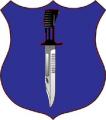Having now dissected EBO, Maneuver Warfare (MW), and Boyd, I wanted to start the discussion on another question that I have been bouncing back and forth with.
I first encountered "4GW" as a term when reading TX Hammes' "The Sling and The Stone" a few years ago, which is an excellent intro into the "flattening" of warfare.
Even then, I was uneasy in the breakdown of the 1/2/3/4th Generation of war, how they were defined, and utilized as a construct.
Looking back, the history dates to 1989 and this article.
At the most simplistic level, I acknowledge 4GW has become a useful 'catch all' for just about any non-conventional, non state based conflict environment. Part of that is that our current (some call 'hybrid') wars don't fit easily into traditional descripive boxes, and thus in many casual conversations people often talk about "4GW".
Having now read much more in the field, including this critique, I have come to view the whole "GW" construct with some measure of derision from a theoretical standpoint. It seems really the 2d/3d GW model was developed for the maneuver war theorists to justify the superiority of their theory rather than a rigorously developed time line of warfare. In fact, it kind of falls apart when you take it beyond the PowerPoint deep nature of the theory and start analyzing against history.
Quite simply, 4GW has been going on long before the proponents state (you can find biblical '4GW' conflicts). Also the idea that maneuver warfare is an evolution past attritional (2GW) warfare troubles me more after the above referenced threads.
I am now seeing "4GW" propped up as a term in more than a few papers and articles in leading journals, often as a throwaway. A large part of this is because the community, military, and academics can't decide what to call these asymmetric/hybrid/4GW/COIN/Stability conflicts.
Is the "generations of war" construct useful, and does it help us in defining and understanding conflict?
* One final note, I sense another argument coming from the MW crew - that it was "justified" despite being a poorly devised construct to bring people to address MW and '4GW'. (the same argument was made about MW as a construct and the sainthood of Boyd) Did the ends justify the means if we accept it as a poor construct?
Let the discussion begin.





 "A Sherman can give you a very nice... edge."- Oddball,
"A Sherman can give you a very nice... edge."- Oddball, 













Bookmarks